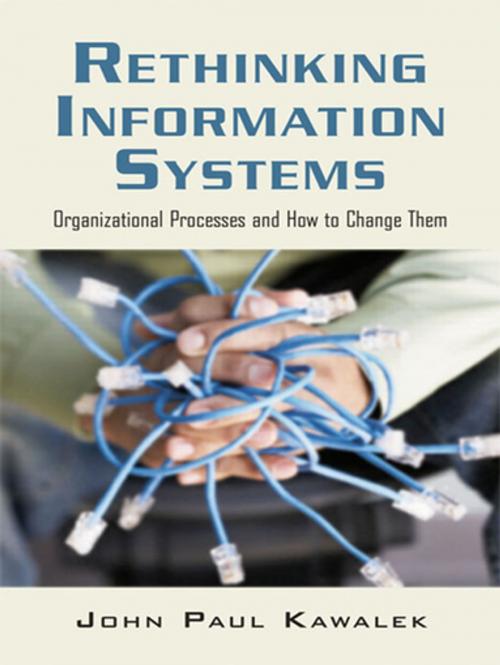Rethinking Information Systems in Organizations
Integrating Organizational Problem Solving
Business & Finance, Human Resources & Personnel Management, Organizational Behavior, Management & Leadership, Management| Author: | John Paul Kawalek | ISBN: | 9781134141999 |
| Publisher: | Taylor and Francis | Publication: | April 18, 2008 |
| Imprint: | Routledge | Language: | English |
| Author: | John Paul Kawalek |
| ISBN: | 9781134141999 |
| Publisher: | Taylor and Francis |
| Publication: | April 18, 2008 |
| Imprint: | Routledge |
| Language: | English |
In Rethinking Information Systems in Organizations John Paul Kawalek challenges the current orthodoxy of information systems and proposes new alternatives. Bold and ambitious, this book tackles the thorny issues of integration of disciplines, cross over of functions, and negotiation of epistemological divides in IS. Historically, the IS discipline has struggled to embrace and integrate technical as well as organizational knowledge, skills and methods. Kawalek argues that there are now a new set of imperatives that will irrecoverably change IS, affecting the way many organizations deploy and access their information and technology. This book defines how the traditional practices of Information Systems are required to integrate into a process of organizational problem-solving.
An essential read for students of business information systems, organizational theory and research methods, Kawalek’s work also provides core methodological principles on organizational change and problem solving, and presents an effective rationale for their use in Information Systems contexts.
In Rethinking Information Systems in Organizations John Paul Kawalek challenges the current orthodoxy of information systems and proposes new alternatives. Bold and ambitious, this book tackles the thorny issues of integration of disciplines, cross over of functions, and negotiation of epistemological divides in IS. Historically, the IS discipline has struggled to embrace and integrate technical as well as organizational knowledge, skills and methods. Kawalek argues that there are now a new set of imperatives that will irrecoverably change IS, affecting the way many organizations deploy and access their information and technology. This book defines how the traditional practices of Information Systems are required to integrate into a process of organizational problem-solving.
An essential read for students of business information systems, organizational theory and research methods, Kawalek’s work also provides core methodological principles on organizational change and problem solving, and presents an effective rationale for their use in Information Systems contexts.















